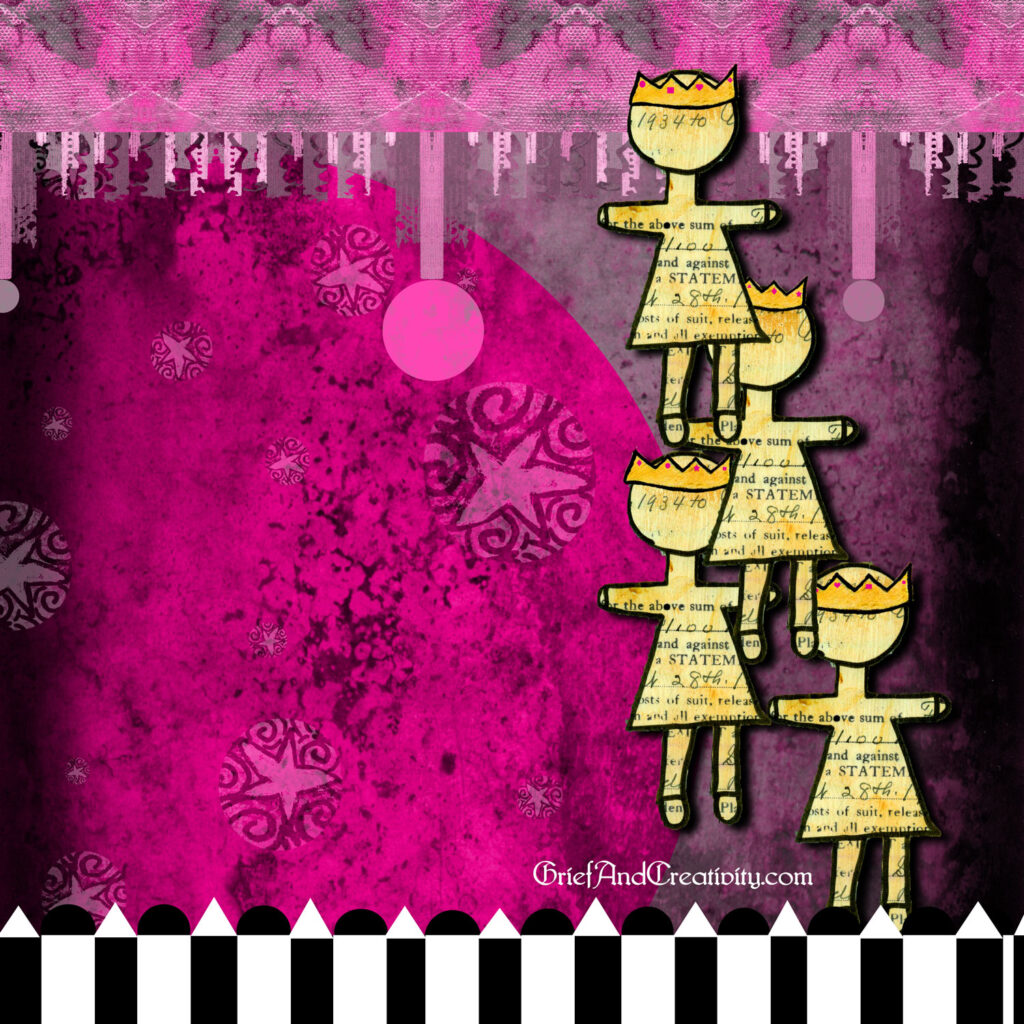By Kara LC Jones
Grief often comes with many misconceptions. One prevalent idea is that grief is to be gotten over or resolved, as if it’s a binary on/off state of being. The damage this does shows throughout our culture’s level of grief illiteracy. So if we want to change this landscape at all, how do we start? Well, one idea is to start by tending your own grief experiences first, and in an ongoing manner.
A truth about grief: it’s not a one-and-done type of experience. We’ve proven this over and over again in evidence-based research in child development. It’s accepted and promoted that grief for children is an ongoing exploration. With each new level of brain development, skill-building, or life experience, they’ll likely revisit previous grief experiences. This allows for a type of ongoing integration and understanding of their losses and how they’re living in the face of those losses. That’s very different from “getting over it.” Why in the world would or should that experience of process end simply because we turn 18 or whatever random age we assign to “adulthood?”
If we could allow this ongoing process for all, we could significantly change how we experience grief, both personally and collectively. Then the question becomes how do we find ongoing support and creative practice for ourselves as adults, when it can feel like the infrastructure for this support is not out there?
Sometimes clients will get frustrated trying to find support and ask me why bother doing this kind of exploration for themselves. Well, as emotionally literate humans, we get lots of growth and health out of doing our own grief process, so I encourage you to keep seeking. By exploring creatively, you get an in-your-bones experience of how grief moves in the world, which gives you a foundation for better relationships. It gives you lots of space and grace to process and integrate your own loss experiences. And hopefully that means you won’t encounter a sense of scarcity or resentment as you later see others getting support or if/when you try holding support space for others.
So where do we start our explorations? There’s a lot out here already. Maybe not in obvious spaces, and you may need to try different formats of support before you find something that fits. So get as curious as you can. Try to approach it with a sense of creativity and play rather than attempting to “do it the right way” or “find closure.” Some ideas might be:
- Your local librarian. Ask if they can point you toward some children’s picture books about grief. Pick one you like and do some journaling or art-making in response to it. What would it have been like if you had had this kind of material when first experiencing grief?
- Films. Try something like “The Way,” with Martin Sheen or “Stories We Tell,” by Sarah Polley. Again, try journaling or art-making in response. What reflections of your own grief experience did you see in the film? What surprised you?
- Music. You could simply Google something like “grief playlists” and explore the results. Listen and see what resonates for you. Which songs vibe with the movement of grief in your life? And why?
- Rituals. Beth Erlander recently wrote a blog called “Why I’m Keen on Keening.” One thing Beth points out in her shares is to remember that grief isn’t just a brain experience. It’s also bodily and somatic. So rituals that include movement and sound might be helpful.
- Staying with the somatics, you might consider what kinds of support would help your body? Trauma and somatic-informed Reiki? Massage? Walking? Movement?
- Try a workshop! Vashon’s own WE Sessions is offering a Creative Grief Workshop online May 31, free for members, $15 for non-members. Email Tina at tina@womenholdthekey.com to register.
- Community events. Explore things like annual Memorial Walks, Grief-In-Public-Day (April 23), National Grief Awareness Day (August 30). What local events are happening?
- In my own experiences, both personal and professional, I’ve found great support for my heARTwork with my own mentors, coaches, and groups. Would working with a grief coach for 1:1 support help you stay creatively prompted in your grief explorations? Would participation in a support group help you build community?
Those are a few starting points for making this creative practice a part of your life. What other ideas might you have for how to tend your heart around your grief experiences?

